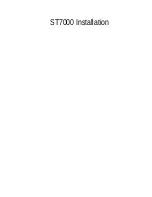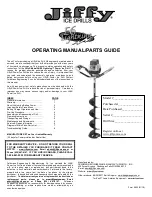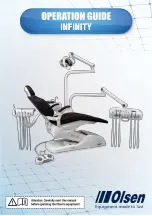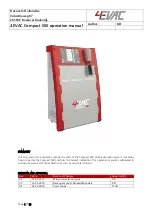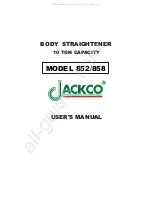
12
110115.05
Waste water tank system
Waste water tank system
Type
:
WWS42 B
WWS61 B
WWS88 B WWS120 B
Capacity*
:
42 litres
9.2 Imp.gal.
11.1 US gal.
6 litres
13.4 Imp.gal.
16.1 US gal.
88 litres
19.4 Imp.gal.
23.2 US gal.
120 litres
26.4 Imp.gal.
31.7 US gal.
Weight* :
12.5 kgs
28 lbs
14 kgs
31 lbs
16 kgs
35 lbs
18 kgs
40 lbs
Max.
Pressure : 30 kPa (0.3 bar, 4 psi)
Material :
mMPE (Metallocene Medium Density Polyethylene),
colour: black
Hose fittings
For filling hose
: 38/25/19/16 mm dia. (1 1/2", 1", 3/4", 5/8")
For discharge hose : 38 mm dia. (1 1/2")
For air relief
: 19 mm dia. (3/4")
For discharge
: 38 mm dia. (1 1/2")
Fittings for hose with suction tube
For Vetus waste water deck cap : 38 mm dia. (1 1∕2” dia.)
Electric motor
WWS..12B
WWS..24B
Type
:
Permanent magnet DC motor
Voltage
:
12 V
DC
24 V
DC
Current (maximum)
:
6A
4A
Level sensor
Power supply
: 12 or 24 Volt
Current taken
: 35 mA
Output
:
Analogue, suitable for 1 or 2 Vetus
level meters or 1x WWCP (control
panel for dirty water)
Accuracy
: +/- 5% (temperature compensated)
Storage temperature
: -20° - +70°C (-4° - +158°F)
Useful temperature range : 0 - +50°C (32° - +122°C)
Pump
Type
: Self-primimg diaphragm pump
Capacity, at 0 m head : 27 I/min (5.9 Imp. gal/min, 7.1 US gal/min)
Max. suction height : 3 metres column of water (10’)
Max. head
: 5 metres column of water (16’5”)
Max. suction height
+ head
: 5 metres column of water (16’5”)
Material
Pump housing
: Plastic
Hose pillars
: Plastic
Diaphragm
: Neoprene rubber
Valves
: Neoprene rubber
Bell housing
: Aluminium, coated
*) Nominal values are given for capacity and weight.
Slight deviations are possible.
Disinfecting
Disinfect the tank by filling it with a solution of bleach in water (1:
1000). Circulate this disinfecting mixture through the waste water
system. Remove the solution and rinse the tank with clean tap water.
4
Making ready for winter
The tank, pipes, pump, etc. must always be drained completely.
n
ote
Never put anti-freeze in the tank or other parts of the drinking wa-
ter system to protect it against freezing, anti-freeze is very poison-
ous!
5
Maintenance
- Check the breather nipple regularly and clean the sieve of the
breather nipple if necessary.
- Check the hoses and hose connections for possible leaks annually
and fit new hoses and/or hose clamps as necessary.
- Also check the tank for damage as a result of chafing. Replace a
damaged tank immediately.
- Carry out the disinfection procedures described under ‘Use’ at the
beginning of the sailing season.
- A tank and installation that is strongly contaminated by algae can
be cleaned by rinsing the tank, the pump and pipes with a solu-
tion of bleach in water (1:20). Rinse the tank with clean tap water.
- Clean the valves if necessary. Thereto remove the relevant hose
pillar, remove the valve and clean it. Re-assemble in reverse order.
- Ensure that the valves are refitted in the correct manner.
6
Technical details





























